Birmingham attorney Robert Couch to oversee Puerto Rico, USVI disaster recovery funds for HUD
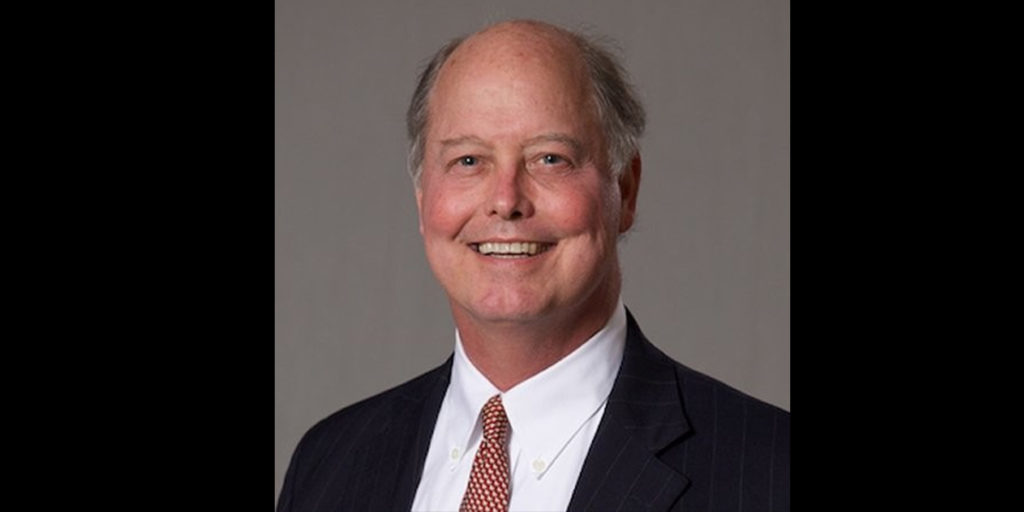
The U.S. Department of Housing and Urban Development (HUD) has a familiar Birmingham face rejoining its ranks. Attorney Robert Couch has parted ways with Bradley Arant Boult Cummings‘ Birmingham office, after accepting a position to return to HUD to serve as the Federal Financial Monitor to oversee the grant administration and disbursement process of disaster recovery funds to Puerto Rico and the U.S. Virgin Islands. Couch was selected for the position by HUD Secretary Ben Carson in response to reports of financial mismanagement and corruption in Puerto Rico. As a career member of HUD’s Senior Executive Service, Couch is overseeing HUD’s Community Development Block Grants (CDBG)-Disaster Recovery efforts in Puerto Rico, which involves aid intended to help the island nation’s recovery from Hurricanes Maria and Irma in 2017 and to help it prepare for future natural disasters. “We are glad to have Robert re-join our Department to manage our financial oversight operations in Puerto Rico,” said Secretary Carson. “He has an extensive background with decades of private and public sector experience dealing with financial reporting, risk management, and executing the law. Robert will be an asset in supporting HUD’s mission to continue aiding recovery efforts in Puerto Rico while ensuring that appropriated funds are used in a responsible manner and for their intended purpose.” “I greatly appreciate the Secretary’s confidence in me,” added Couch. “I share his dedication to the recovery from Hurricanes Irma and Maria, and his determination to ensuring that the funds entrusted to HUD by Congress for the survivors are expended as quickly as possible while still safeguarding against waste, fraud and abuse. I look forward to working with the disaster recovery teams in both locales, and I thank Olga Castellón, the Acting FFM, for paving the way so I can hit the ground running.” Couch previously served as HUD’s General Counsel from December 2006 to November 2008 where he acted as the chief legal advisor to the Secretary, Deputy Secretary, and other principal staff, providing advice on federal laws, regulations, and policies affecting HUD programs. He also served as President of the Government National Mortgage Association (Ginnie Mae), Commissioner on the Bipartisan Policy Center’s Housing Commission, and as a member of President George W. Bush‘s Task Force on the Status of Puerto Rico. Prior to his government service, Couch was President and Chief Executive Officer of New South Federal Savings Bank in Birmingham, Ala., and acted as General Counsel and Chief Financial Officer of First Commercial Bancshares. He is a former Chairman and Member of the Board of Directors of the Mortgage Bankers Association of America, former President of the Mortgage Bankers Association of Alabama, a Certified Public Accountant (inactive), and a Certified Mortgage Banker (Master Certificate).
Donald Trump rejects Puerto Rico hurricane death toll, blames Dems
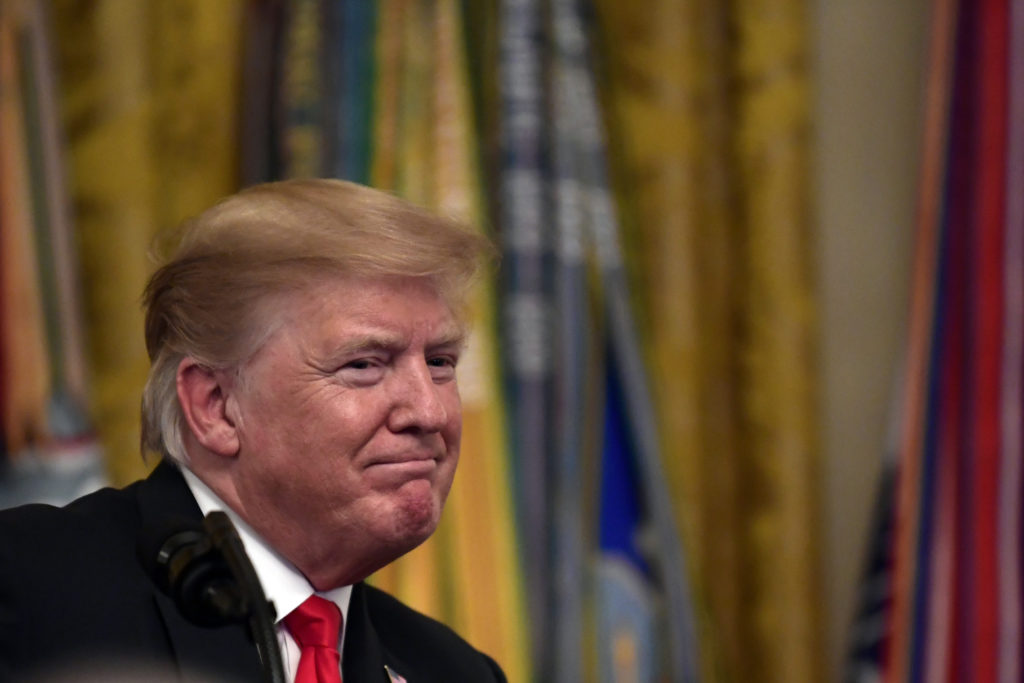
President Donald Trump on Thursday rejected the widely accepted conclusion that nearly 3,000 died in Puerto Rico from Hurricane Maria, arguing without evidence that the number was wrong and calling it a plot by Democrats to make him look bad. As Hurricane Florence approached the Carolinas, the president picked a fresh fight over the administration’s response in Puerto Rico, tweeting: “When I left the Island, AFTER the storm had hit, they had anywhere from 6 to 18 deaths. As time went by it did not go up by much. Then, a long time later, they started to report really large numbers, like 3000.” 3000 people did not die in the two hurricanes that hit Puerto Rico. When I left the Island, AFTER the storm had hit, they had anywhere from 6 to 18 deaths. As time went by it did not go up by much. Then, a long time later, they started to report really large numbers, like 3000… — Donald J. Trump (@realDonaldTrump) September 13, 2018 Trump added: “This was done by the Democrats in order to make me look as bad as possible when I was successfully raising Billions of Dollars to help rebuild Puerto Rico.” …..This was done by the Democrats in order to make me look as bad as possible when I was successfully raising Billions of Dollars to help rebuild Puerto Rico. If a person died for any reason, like old age, just add them onto the list. Bad politics. I love Puerto Rico! — Donald J. Trump (@realDonaldTrump) September 13, 2018 Puerto Rico’s governor last month raised the U.S. territory’s official death toll from Hurricane Maria from 64 to 2,975 after an independent study found that the number of people who succumbed in the sweltering aftermath had been severely undercounted. The estimate of nearly 3,000 dead in the six months after Maria devastated the island in September 2017 and knocked out the entire electrical grid was made by researchers with the Milken Institute School of Public Health at George Washington University. The study says the original estimates were so low because doctors on the island had not been trained to properly classify deaths after a natural disaster. The elderly and impoverished were hardest hit by the hurricane. Republished with permission from the Associated Press.
Terri Sewell visits to Puerto Rico, US Virgin Islands focusing on hurricane recovery efforts
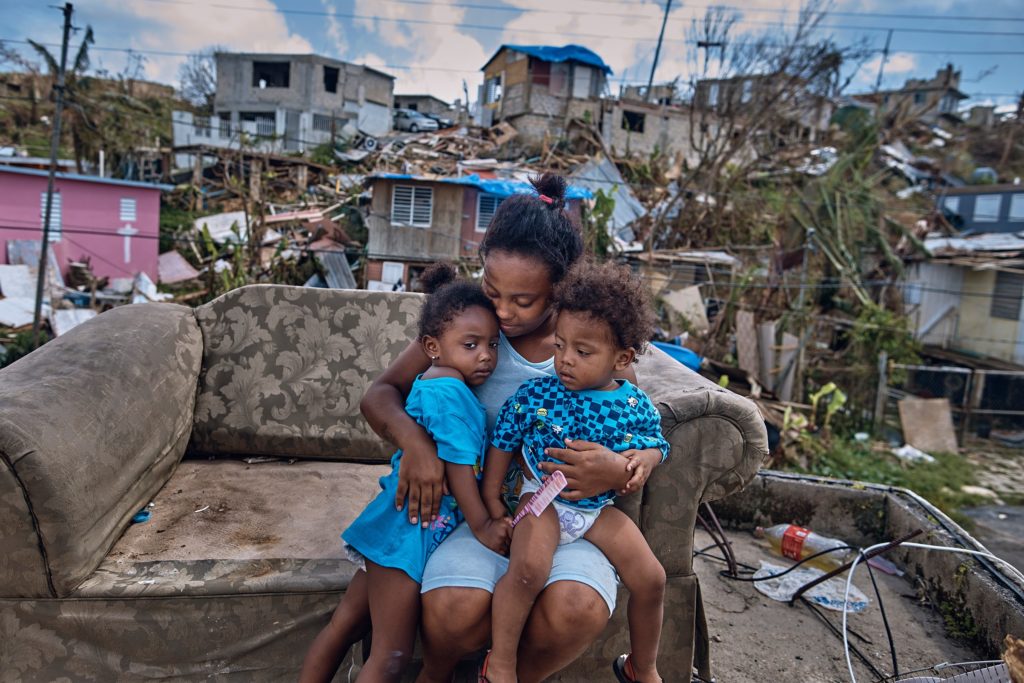
With the House going out of session ahead of the the August District Work Period, more commonly known as August Recess, Alabama 7th District U.S. Rep. Terri Sewell is using this time to join her peers to visit to Puerto Rico and the U.S. Virgin Islands focusing on hurricane recovery efforts. The group, which left Thursday, will meet with families, local officials and leaders, faith groups, faith groups, and community groups over the next two days to discuss effective recovery efforts and what steps must be taken to ensure that every community receives the resources it needs to rebuild. “A year after the hurricanes hit, too many families in Puerto Rico and the U.S. Virgin Islands are still without clean water, without power, and without roofs on their homes,” said Sewell. “Our delegation visit will bring attention to this ongoing crisis and needed oversight to federal recovery efforts.” She continued, “This Administration’s neglect for Puerto Rico and the U.S. Virgin Islands after they were devastated by Hurricane Maria is nothing short of disgraceful. We have a responsibility to help our fellow Americans recover from one of the worst natural disasters of this decade. As another hurricane season approaches, the need for action is urgent.” In addition to Sewell, the Members of the delegation are: Rep. Nancy Pelosi (D-CA), House Minority Leader Rep. Luis Gutiérrez (D-IL), Judiciary Committee Rep. Nydia Velázquez (D-NY), Ranking Member, Small Business Committee; Natural Resources Committee; Financial Services Committee Rep. Shelia Jackson-Lee (D-TX), Judiciary Committee; Homeland Security Committee Rep. Jim McGovern (D-MA), Ranking Member, Rules Committee; Agriculture Committee Rep. Gregory Meeks (D-NY), Financial Services Committee; Foreign Affairs Committee Rep. Betty McCollum (D-MN), Appropriations Committee Rep. Terri Sewell (D-AL), Ways & Means Committee; Intelligence Committee Rep. Michelle Lujan Grisham (D-NM), Agriculture Committee; Chair, Congressional Hispanic Caucus Rep. Raul Ruiz (D-CA), Energy & Commerce Committee Rep. Robin Kelly (D-IL), Oversight & Government Reform Committee; Foreign Affairs Committee Rep. Stacey Plaskett (D-VI), Transportation & Infrastructure Committee; Oversight & Government Reform Committee; Agriculture Committee Rep. Dwight Evans (D-PA), Agriculture Committee; Small Business Committee Rep. Val Demings (D-FL), Judiciary Committee; Homeland Security Committee Rep. Adriano Espaillat (D-NY), Education & Workforce Committee; Small Business Committee; Foreign Affairs Committee
Alabama crews playing a big part in restoring power to Puerto Rico
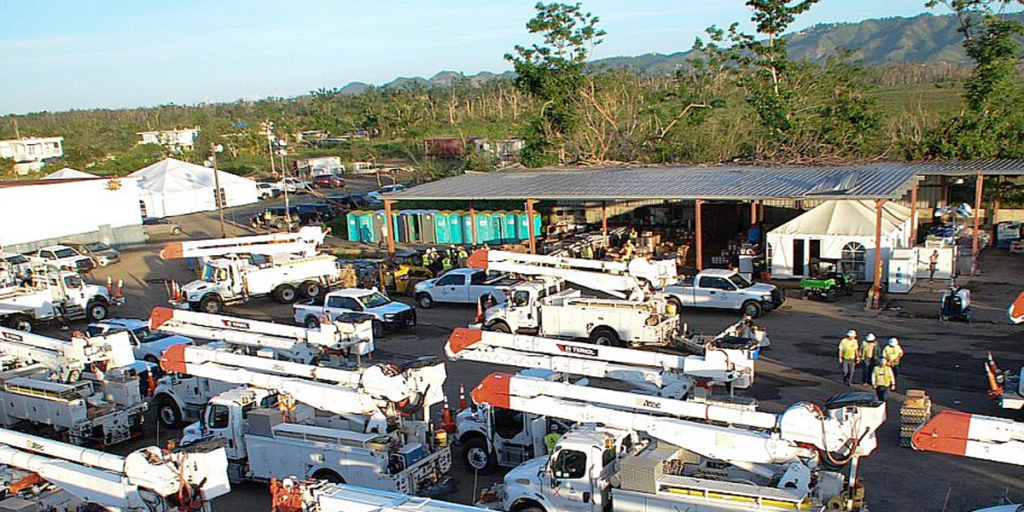
For more than a month, some Alabama Power crews have helped restore outages in Puerto Rico. The island was hit by a hurricane last fall, causing substantial structural damage to homes and businesses and thousands of power outages. Alabama Power crews joined crews from Gulf Power, Mississippi Power, and Georgia Power leaving out of the Birmingham-Shuttlesworth Airport Jan. 20 with the goal of helping get the lights restored. As lights are coming back on, and a sense of normalcy returns, residents are taking time out to say thank you to the crews for their hard work. Republished with permission from the Alabama NewsCenter.
Alabama Power experts spend holidays helping with Puerto Rico recovery
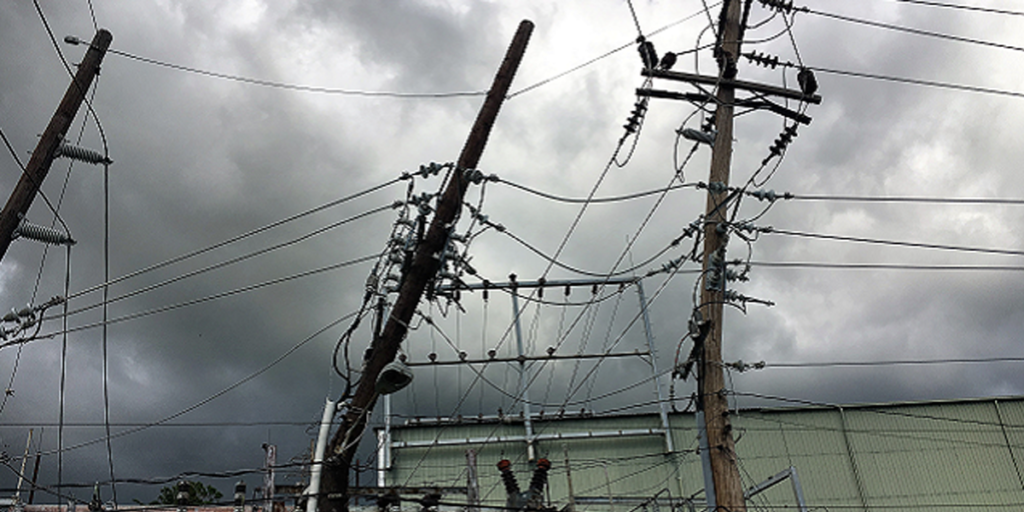
It’s been an arduous, frustrating journey for the people of Puerto Rico, still recovering from Hurricane Maria. More than three months after the monster storm struck the island, thousands remain without electric service. But members of the Alabama Power team working in Puerto Rico for the past two weeks say they’ve been treated warmly by everyone they encounter. “People here are nothing but grateful, kind and considerate. They have been so welcoming to us,” Mark Stacks, a power delivery manager in Alabama Power’s Birmingham Division, said during a brief phone call from the western region of Mayaguez. Cellphone service on the island is still spotty, so Stacks spoke fast. “When you see the devastation here, it just puts it in perspective,” Stacks said. Also on Alabama Power’s Puerto Rico team are Brian Lindsay, Wray Anderson and Randy Brasher – all veterans of storm recovery operations. On Dec. 10 they joined six other professionals from sister companies Georgia Power, Gulf Power and Mississippi Power as part of Southern Company’s effort to help get the lights back on. Other investor-owned utilities from across the U.S. also have sent in teams to help the Puerto Rico Electric Power Authority (PREPA), the Army Corps of Engineers and others in the restoration effort. Stacks said the Southern Company team is working in conjunction with PREPA, the Corps and others in assessing damage, refining restoration plans and determining priorities based on a variety of factors, including the challenging conditions on the ground. With some equipment and supplies still on their way to the island, the Southern team has been helping with logistical planning: pinpointing where available resources and equipment should be allocated to speed restoration. For instance, Stacks said the Southern team helped coordinate installation of power poles in one community, so they would be in place when wires, transformers and other equipment arrived on site. “We are working with them to see if we can use our experience from previous storms to help bridge the gap,” Stacks said. He said the damage remains widespread, although progress is being made. For example, much of the transmission system, which carries power from generating plants to substations, has been restored, as well as many main lines into communities. On the other hand, “there are broken poles still everywhere.” The combined Southern Company team was expected to remain on the island through the first week of January, when a second Southern team will take its place. Stacks said the team was in “high spirits,” despite being away from home during the holidays. He said the Southern team has built “great chemistry” as it works closely with the organizations leading the restoration. “We’re doing what we can to help,” Stacks said. Republished with permission from the Alabama NewsCenter.
Donald Trump signs $36.5 billion emergency aid bill for disasters
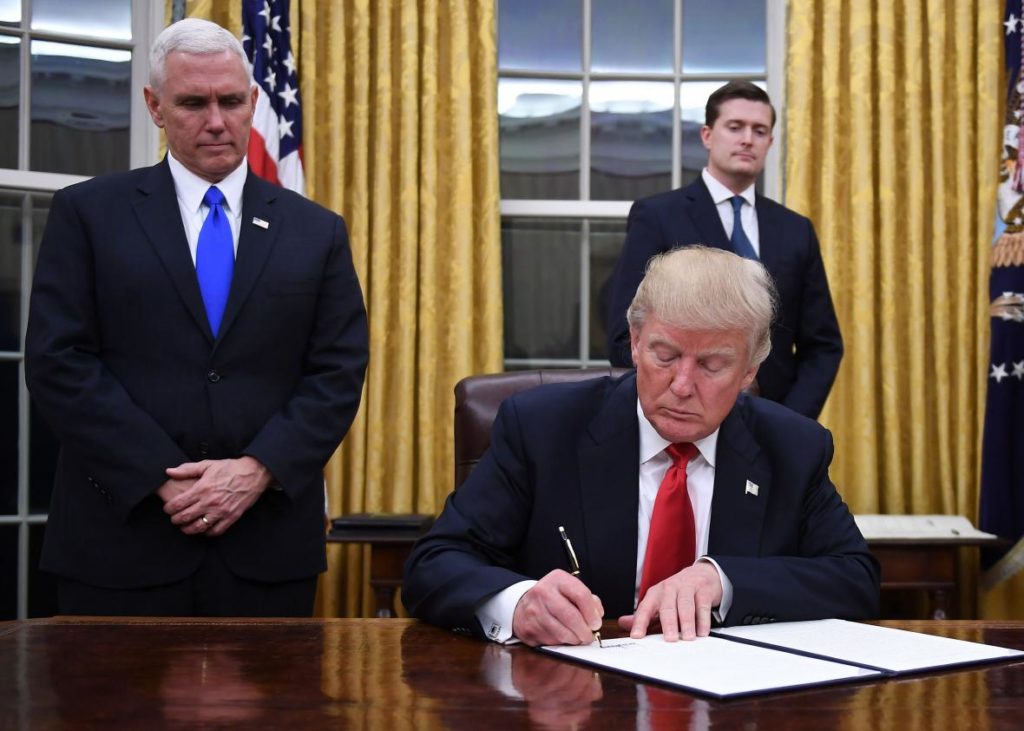
President Donald Trump has signed a $36.5 billion emergency aid measure to refill disaster accounts, provide a cash infusion to Puerto Rico and bail out the federal flood insurance program. The president signed the bill Thursday after the Senate sent him the measure earlier this week to help Florida, Texas and Puerto Rico after a devastating string of hurricanes. The money will also help Western states dealing with massive wildfires. To date, Congress has approved more than $50 billion in disaster aid this fall, but more money will be needed. The states and Puerto Rico continue to assess the damage from an onslaught of damaging storms. Republished with permission from the Associated Press.
Donald Trump says Puerto Rico can’t get hurricane aid ‘forever’
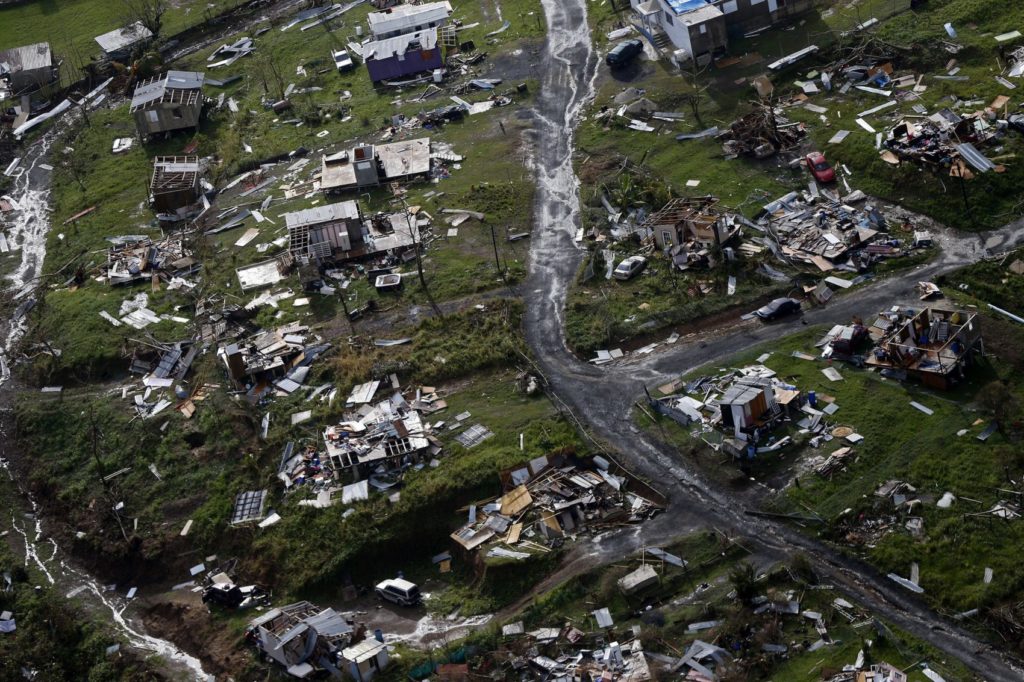
President Donald Trump lashed out at hurricane-devastated Puerto Rico on Thursday, insisting that federal help will be limited and blaming the U.S. territory for its financial struggles. The broadside came as the House headed toward passage of a $36.5 billion disaster aid package, including assistance for Puerto Rico. Puerto Rico has been reeling since Hurricane Maria struck three weeks ago, leaving death and destruction in an unparalleled humanitarian crisis. Forty-five deaths in Puerto Rico have been blamed on Maria, 90 percent of the island is still without power and the government says it hopes to have electricity restored completely by March. Trump tweeted: “We cannot keep FEMA, the Military & the First Responders, who have been amazing (under the most difficult circumstances) in P.R. forever!” In a series of tweets, the president said “electric and all infrastructure was disaster before hurricanes.” He blamed Puerto Rico for its looming financial crisis and “a total lack of accountability.” Democrats said Trump’s attacks were “shameful,” given that the 3 million-plus U.S. citizens on Puerto Rico are confronting the kind of hardships that would draw howls of outrage if they affected a state. One-third of the island lacks clean running water and just 8 percent of its roads are passable, according to government statistics. “It is shameful that President Trump is threatening to abandon these Americans when they most need the federal government’s help,” said Maryland Rep. Steny Hoyer, the second-ranking House Democrat. The legislative aid package totals $36.5 billion and sticks close to a White House request. For now, it ignores huge demands from the powerful Florida and Texas delegations, which together pressed for some $40 billion more. A steady series of disasters could put 2017 on track to rival Hurricane Katrina and other 2005 storms as the most costly set of disasters ever. Katrina required about $110 billion in emergency appropriations. The bill combines $18.7 billion for the Federal Emergency Management Agency with $16 billion to permit the financially troubled federal flood insurance program pay an influx of Harvey-related claims. An additional $577 million would pay for western firefighting efforts. Up to $5 billion of the FEMA money could be used to help local governments remain functional as they endure unsustainable cash shortfalls in the aftermath of Maria, which has choked off revenues and strained resources. House Speaker Paul Ryan, R-Wis., planned to visit Puerto Rico on Friday. He has promised that the island will get what it needs. “It’s not easy when you’re used to live in an American way of life, and then somebody tell you that you’re going to be without power for six or eight months,” said Resident Commissioner Jenniffer Gonzalez-Colon, who represents Puerto Rico as a nonvoting member of Congress. “It’s not easy when you are continue to suffer – see the suffering of the people without food, without water, and actually living in a humanitarian crisis.” The GOP-run Congress had protracted debates last year on modest requests by former President Barack Obama to combat the Zika virus and help Flint, Michigan, repair its lead-tainted water system. Now, it is moving quickly to take care of this year’s crises, quickly passing a $15.3 billion measure last month and signaling that another installment is coming next month. Several lawmakers from hurricane-hit states said a third interim aid request is anticipated shortly – with a final, huge hurricane recovery and rebuilding package likely to be acted upon by the end of the year. Republished with permission from the Associated Press.
Lawmakers seek Puerto Rico exemption to law that slowed aid
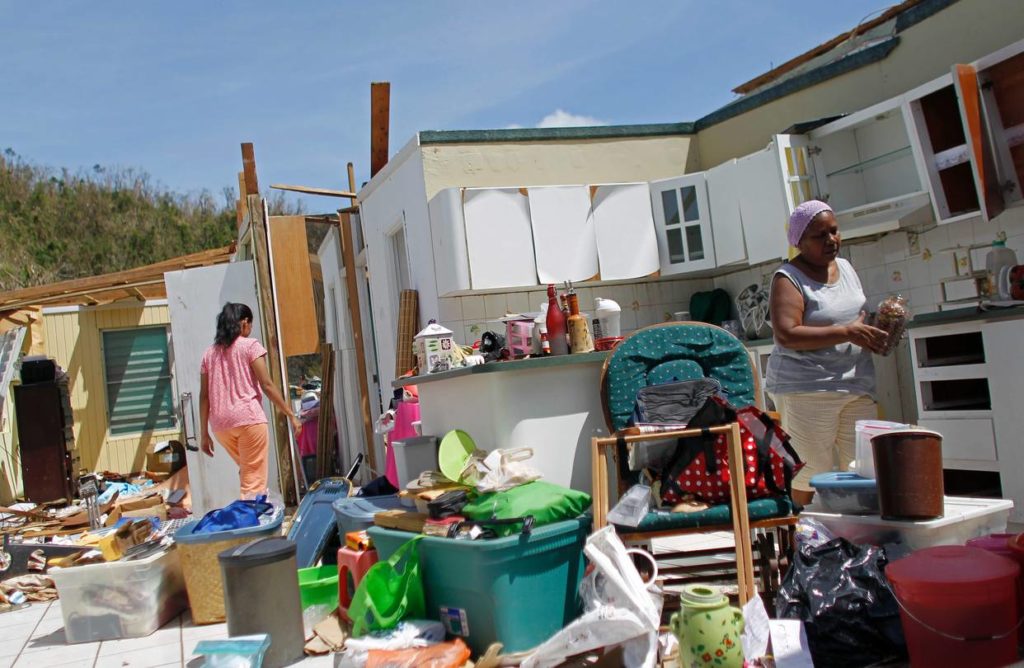
Republicans and Democrats in Congress are pushing to exempt Puerto Rico from a federal law that prohibits foreign-flagged ships from shuttling goods between U.S. ports. President Donald Trump temporarily waived the Jones Act last month amid criticism that the once-obscure law hindered relief efforts to in Puerto Rico following Hurricane Maria. The 10-day waiver expired on Sunday night and was not renewed. A spokesman for the Department of Homeland Security said an extension was not needed to support relief efforts on the island, adding that there’s “an ample supply” of U.S.-flagged vessels to ensure cargo reaches Puerto Rico. Sen. John McCain, R-Ariz., said Monday that the expiration of the Jones Act waiver added renewed urgency to his push to permanently exempt Puerto Rico from what he called an “archaic and burdensome law.” “Until we provide Puerto Rico with long-term relief, the Jones Act will continue to hinder much-needed efforts to help the people of Puerto Rico recover and rebuild from Hurricane Maria,” he said. Rep. Nydia Velázquez, D-N.Y., said the temporary waiver should be extended for at least a year while Congress debates a permanent exemption for Puerto Rico. “Significant numbers of Puerto Ricans remain displaced and still lack food, drinking water and electricity,” she wrote in a letter to Trump. “If the Jones Act is reinstated, building supplies will cost significantly more in Puerto Rico, compared to costs on the mainland. This will serve only to slow Puerto Rico’s long-term recovery.” The Trump administration initially said a waiver was not needed because there were enough U.S.-flagged ships available to ferry goods to Puerto Rico. Delays in getting relief supplies to Puerto Rico occurred because of bottlenecks that resulted from the island’s damaged ports and blocked roads, not a lack of ships, officials said. Even so, Trump waived Jones Act restrictions on Sept. 28, just as he had done to help ease fuel shortages in the Southeast following hurricanes Harvey and Irma. Rep. Pramila Jayapal, D-Wash., called the Jones Act “incredibly important to our country’s economy and to the maritime industry,” which she said supports nearly 500,000 jobs and is responsible for more than $92 billion in annual gross economic output. In Washington state, the Jones Act supports more than 16,000, mostly unionized jobs, Jayapal said. “Without these jobs, our economy would suffer tremendously,” she said. “To be clear, everywhere in the country where we have Jones Act jobs, they are better jobs, better wages and a better future for our Americans across the country,” Jayapal said last week in a speech on the House floor. Republished with permission from the Associated Press.
Gary Palmer introduces bipartisan Puerto Rico Humanitarian Relief Act

In the wake of Hurricane Maria’s devastation — knocking out power, most of its water, and leaving residents waiting for fuel — Puerto Rico Gov. Ricardo A. Rosselló said the U.S. territory was on the brink of a “humanitarian crisis” and called on Congress to help the island recover. “Puerto Rico, which is part of the United States, can turn into a humanitarian crisis,” Rosselló said. “To avoid that, recognize that we Puerto Ricans are American citizens; when we speak of a catastrophe, everyone must be treated equally.” On Thursday, Republican and Alabama 6th District U.S. Rep. Gary Palmer along with his Democratic colleague, New York 7th District U.S. Rep. Nydia Velázquez, answered Rosselló’s plea for help and introduced H.R. 3966: the Puerto Rico Humanitarian Relief Act. The bill provides a five year moratorium of an obscure shipping law — the Merchant Marine Act of 1920, more commonly known as the Jones Act. The century-old law requires any goods shipped to Puerto Rico from a U.S. port be carried in a U.S. owned, U.S. crewed, U.S. built, and U.S. flagged vessel. According to a 2010 study at the University of Puerto Rico, Puerto Rico loses $537 million every year due to the Jones Act, a devastating figure for a country which essentially declared bankruptcy earlier this year. The Puerto Rico Humanitarian Relief Act would provide relief from this burdensome regulation and allow Puerto Rico the opportunity to rebuild their island without added costs and delays caused by the requirements of the Jones Act. “The Congress has the responsibility to act when enacted laws prove to be burdensome. This is especially true in a humanitarian crisis,” said Palmer. “Our bill provides Puerto Ricans with extended relief from the Jones Act to help them put their lives back together as they rebuild their homes, their communities and their infrastructure. The cost of goods in Puerto Rico is already substantially higher due to Jones Act related shipping costs, and, especially in a humanitarian crisis, every penny counts.” According to a report from the Federal Reserve Bank of New York, it costs $3,063 to ship a twenty-foot container from the East Coast of the United States to Puerto Rico and $1,504 to ship the same container to the nearby Dominican Republic—a destination not subject to the Jones Act. Higher shipping costs could significantly delay efforts to rebuild its economy and rebuild the communities devastated by Hurricane Maria. Velázquez echoed Palmer’s sentiments. “Puerto Rico has a long, difficult road ahead of it and the Jones Act will serve only to impede its physical and economic recovery,”Velázquez explained. As the Island struggles to rebuild, it should not be saddled with the burden of paying significantly more for construction materials and other goods, compared to the mainland.” Velázquez continued, “Moreover, a long term waiver of the Jones Act will stimulate economic activity. I have already called on the President to, at minimum, exempt Puerto Rico from the Jones Act for at least one year and I’m proud to co-author this bipartisan measure seeking a five-year waiver. Importantly, this bill also requires a full study of the Jones Act’s economic impact, so we have the empirical data to end this debate once and for all.”
Trump budget chiefs says no bailout for Puerto Rico debt
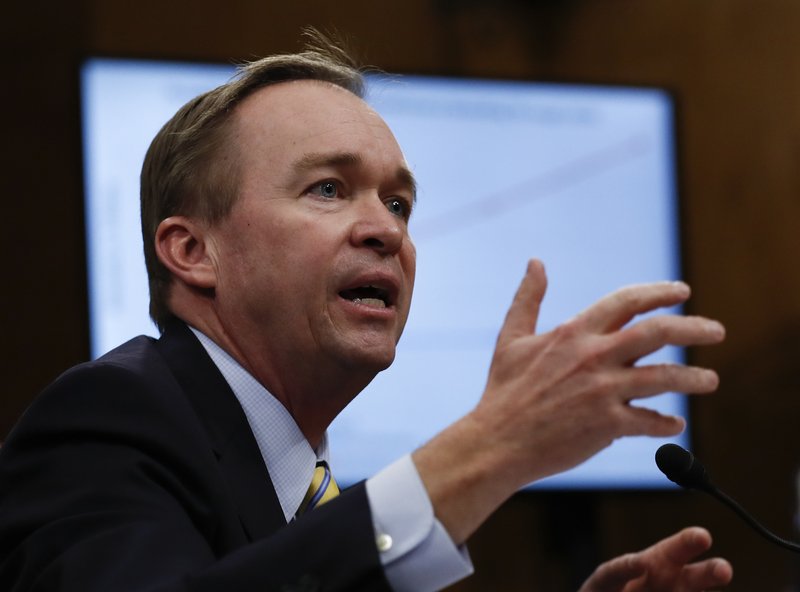
The White House’s budget director says Puerto Rico shouldn’t expect a federal bailout of its debt – even after President Donald Trump spoke of the need to “wipe out” that red ink as part of the island’s recovery after Hurricane Maria. Mick Mulvaney tells reporters that the administration plans to send Congress a disaster aid package that’ll include money for the U.S. territory. But Mulvaney says: “We are not going to be offering a bailout for Puerto Rico or for its current bondholders.” Trump told Fox News on Tuesday that federal officials would have to look at Puerto Rico’s debt structure and “we’re going to have to wipe that out.” Before the hurricane, Puerto Rico’s government was negotiating with creditors to restructure a portion of its $73 billion in debt. Republished with permission from the Associated Press.
Kay Ivey authorizes Alabama National Guard to send support to Puerto Rico

An RC-26 aircraft and a team of five Alabama National Guard crew members have been authorized to deploy to Puerto Rico in response to the recent hurricane impact to the island. Governor Kay Ivey authorized Major General Sheryl Gordon, Adjutant General of the Alabama National Guard, to send the RC-26 — highly capable aircraft in relation to airborne reconnaissance missions. The aircraft and crew will provide aerial imagery of hurricane impacted areas — based on the unique capabilities the aircraft will provide in supporting the efforts of Puerto Rican emergency managers and the National Guard. “Alabamians are a kind and caring people – we are committed to helping those in need,” said Ivey. “We are proud to offer the Alabama National Guard to assist with recovery efforts in Puerto Rico, and we continue to keep the people of Puerto Rico in our thoughts and prayers.” More than 3.4 million U.S. citizens in Puerto Rico still lack adequate food and water six days after Maria ravaged the island as a Category 4 hurricane. Officials say electrical power may not be fully restored for more than a month. Alabama National Guard equipment and personnel remain postured to ensure additional resources are readily available to support other recovery efforts, if needed.
Congress edges closer to passing Puerto Rico rescue package
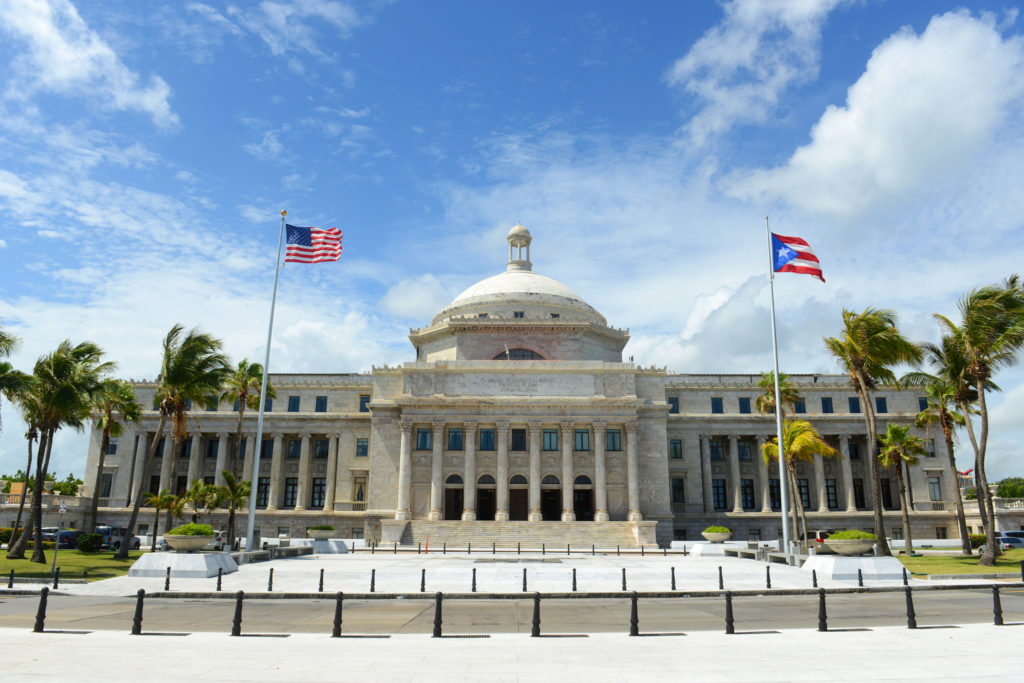
Congress edged closer to delivering relief to debt-stricken Puerto Rico as the Senate on Wednesday cleared the way for passage of a last-minute financial rescue package for the territory of 3.5 million Americans. Puerto Rico is in a decade-long recession and has $70 billion in debt. A $2 billion payment to creditors is due Friday. Thousands have fled the island and moved to the U.S. mainland as businesses have closed, schools have struggled with limited electricity and hospitals have asked for cash payment in advance for some medication. The White House and Republican and Democratic leaders in Congress have warned that without help from Washington, Puerto Rico will descend into economic chaos, with signs already pointing to a humanitarian crisis. Senate Majority Leader Mitch McConnell, R-Ky., scheduled a final vote on the legislation for Wednesday evening. Earlier Wednesday, the Senate voted 68-32 to move forward on the bill, paving the way for passage. The House passed the bill earlier this month, so Senate passage would send the bill to President Barack Obama for his signature. The legislation would create a control board to oversee the U.S. territory’s finances and supervise some debt restructuring. The legislation would not provide any direct financial aid to the territory, but leaders warned that a bailout could eventually become necessary if Congress doesn’t take this step. “If we don’t act before the island misses a critical debt payment deadline this Friday, matters will only get worse – for Puerto Rico and for taxpayers,” said McConnell said. The control board would be similar to one that oversaw the District of Columbia in the late 1990s. Its seven members would oversee negotiations with creditors and the courts over reducing some debt. In addition to creating the board, the bill would require the territory to create a fiscal plan and fund public pensions, which the Puerto Rico government has shorted by more than $40 billion. Treasury Secretary Jacob Lew visited Capitol Hill on Tuesday in a bid to persuade some reluctant Democrats concerned that the board would be too powerful. Democrats have also opposed a provision that would allow the island’s government to lower the minimum wage for some younger workers. Lew urged senators to vote for the bill even though it isn’t perfect, saying that if the island defaults, the government may be forced to shut public transit, close a hospital or send police officers home. He and other supporters warned that if the measure fails to pass before the July 1 payment deadline, the island will face multiple lawsuits from unpaid creditors and could be forced to cut essential services further. The legislation would temporarily block creditor lawsuits. In a rare case of bipartisanship in an election year, the package had the support of Obama and top Republican and Democratic leaders in the House and Senate. “This economic crisis is a humanitarian disaster,” said Senate Minority Leader Harry Reid, D-Nev., who backed the bill despite frustration that Democrats were blocked from making changes. “Medical services have diminished. Hospitals are unable to pay their bills. Puerto Rico’s largest hospital has closed two of its wings, reduced the number of beds by nearly 25 percent, and cut pay for all employees.” Some Democrats backed the bill unenthusiastically. “I’m not going to let the adequate be the enemy of the barely sufficient,” said Oregon Sen. Ron Wyden, top Democrat on the Senate Finance Committee. Others voted against it. Democratic Sen. Bob Menendez of New Jersey monopolized the Senate floor for more than four hours Tuesday evening, arguing that the bill adopts a colonial approach over the territory’s 3.5 million U.S. citizens. He said ordinary Puerto Ricans would have little say over the control board and the package favors hedge-fund creditors over island pensioners. Sen. Bernie Sanders, I-Vt., opposed the legislation for similar reasons. “In my view we need austerity not for the people of Puerto Rico, but for the billionaire Wall Street hedge fund managers who have exacerbated the crisis on the island,” Sanders said on the floor. Republicans were split. Some said the control board wouldn’t be powerful enough. Others said it was the best path forward. “We’re not going to let Puerto Rico go off a cliff here, it’s too important,” said Florida Sen. Marco Rubio. The legislation is needed because Puerto Rico cannot declare bankruptcy under federal law. Mainland municipalities and their utilities can, while municipalities and utilities in Puerto Rico cannot. In the days before the vote, some bondholder groups worked to turn senators against the bill, arguing it doesn’t sufficiently protect creditors and is tantamount to a bailout for the territory. Several labor unions also lobbied against the measure, arguing that a lower minimum wage could take money out of the Puerto Rican economy. Like Lew, Puerto Rican Gov. Alejandro Garcia Padilla made an 11th-hour visit to Capitol Hill to lobby for votes. “It’s not perfect, but we need it,” Garcia said Tuesday. Republished with permission of The Associated Press.


